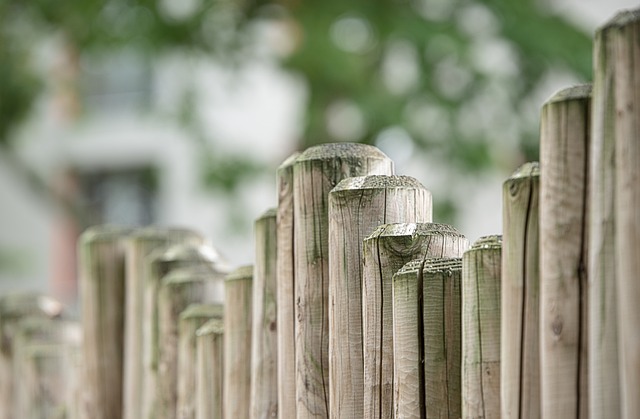In New Bedford, MA, residential fence installation is a popular home improvement project that offers both aesthetic and practical benefits. Whether you’re looking to enhance your property’s curb appeal, provide security, or create a private outdoor space, choosing the right fence company is essential. This comprehensive guide explores the entire process, from understanding local regulations to selecting the perfect fence style and material. We’ll also cover installation tips and maintenance strategies to ensure your new fence remains in top condition for years to come.
- Understanding Residential Fence Installation in New Bedford
- Choosing the Right Fence Company: Factors to Consider
- Types of Fences: Styles and Materials for Your Home
- Permits and Regulations: What You Need to Know
- The Installation Process: From Planning to Completion
- Maintenance Tips: Keeping Your Fence Looking Great
Understanding Residential Fence Installation in New Bedford
Residential fence installation in New Bedford involves several key steps and considerations. First, homeowners should assess their property’s unique features, such as terrain, landscaping, and nearby structures, to determine the most suitable fencing material and design. Popular choices include wood, vinyl, or chain-link fences, each with its own aesthetic appeal and functional benefits.
Next, hiring a reputable residential fence installation company is crucial. These professionals bring expertise in measuring, designing, and installing fences while ensuring compliance with local building codes. They also offer valuable advice on maintenance and upkeep, prolonging the life and beauty of your new fence.
Choosing the Right Fence Company: Factors to Consider
When choosing a residential fence installation company in New Bedford, MA, it’s crucial to consider several factors that will ensure you get quality service and a durable fence. First, research their reputation and experience; look for reviews and testimonials from previous clients to gauge their professionalism and work ethic. A seasoned company with a proven track record is more likely to deliver excellent results.
Additionally, verify their licensing, insurance, and warranties. Ensure they have the necessary permits to operate in your area and that their insurance covers any potential damages during installation. A comprehensive warranty on materials and labor reassures you of their confidence in their work and provides protection against future issues.
Types of Fences: Styles and Materials for Your Home
When it comes to residential fence installation, New Bedford, MA offers a variety of styles and materials to suit different tastes and budgets. Wooden fences are a popular choice due to their classic beauty and durability, with options like cedar and pressure-treated pine providing long-lasting protection against rot and pests. These natural materials add warmth and charm to any property.
Alternatively, vinyl fences are low-maintenance and cost-effective, available in numerous styles and colors to match your home’s exterior. Metal fences, including wrought iron and steel, offer both security and aesthetics, with customizable designs that can enhance the overall look of your yard. Each type has its unique advantages, allowing homeowners to choose based on their preferences and needs.
Permits and Regulations: What You Need to Know
Before engaging any residential fence installation company in New Bedford, MA, it’s crucial to understand the permits and regulations that govern such projects. The city or town where you reside often requires permits for fence construction, and these can vary based on the type of fence, its height, and location. Failure to obtain the necessary permits can result in fines or even the necessity to tear down the installed fence.
Researching local building codes is an essential first step. These codes detail specific requirements for fence materials, designs, and placement. Check with the New Bedford planning department or building inspection office to gather the relevant forms and understand the application process. Having all your documents in order before starting any construction project ensures a smoother experience and helps avoid potential legal issues down the line.
The Installation Process: From Planning to Completion
The installation process for a residential fence begins with a detailed planning phase. Companies will meet with clients to discuss their vision, property layout, and budget. This step is crucial as it ensures the final product aligns with expectations. The team will assess the site, considering factors like terrain, existing structures, and local regulations, before proceeding with the design and material selection.
Once approved, the installation process involves several stages. First, the area is prepared by clearing any obstacles. Then, posts are installed, serving as the fence’s foundation. Wires or boards are secured to these posts, creating the framework. Finally, the finishing touches are added, including gates, caps, and any decorative elements, resulting in a fully functional and aesthetically pleasing residential fence.
Maintenance Tips: Keeping Your Fence Looking Great
To keep your new fence looking its best over time, regular maintenance is key. Start by cleaning your fence at least once a year to remove any dirt, debris, or mold buildup. Use a soft-bristled brush and mild detergent for wooden fences, and a pressure washer for vinyl or metal. This will help extend the life of your fence and maintain its aesthetic appeal.
Additionally, inspect your fence regularly for any signs of damage, such as broken boards, loose posts, or rust spots. Promptly repair or replace damaged sections to prevent further deterioration. Regular painting or sealing can also protect against the elements, ensuring your fence stays vibrant and durable for years to come.
